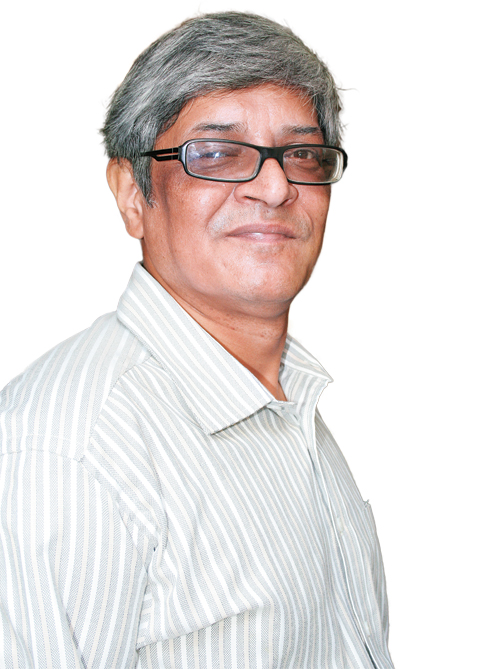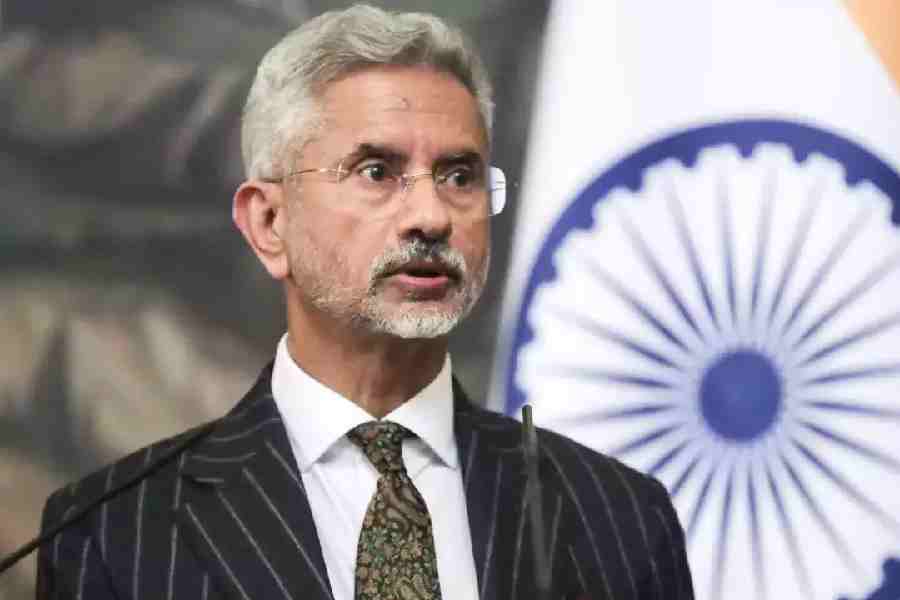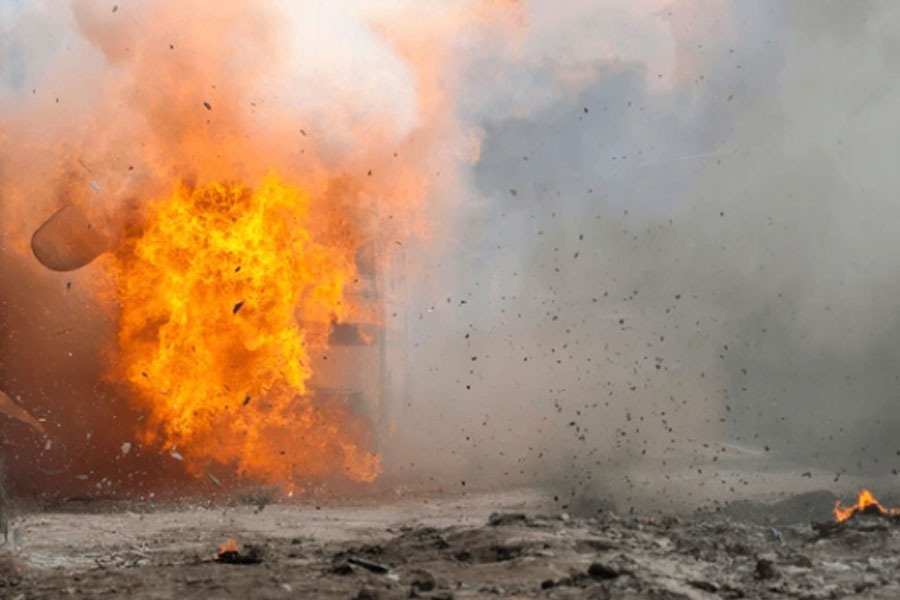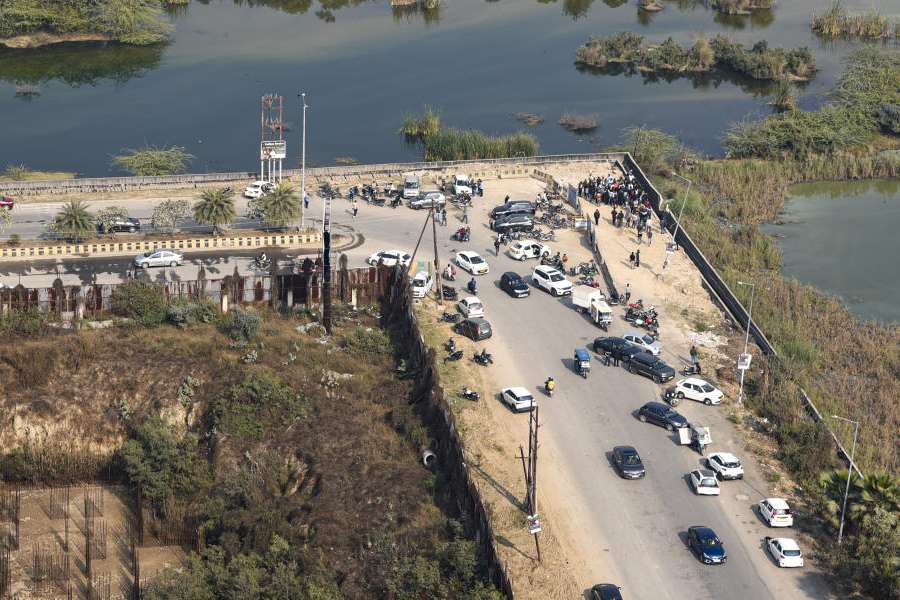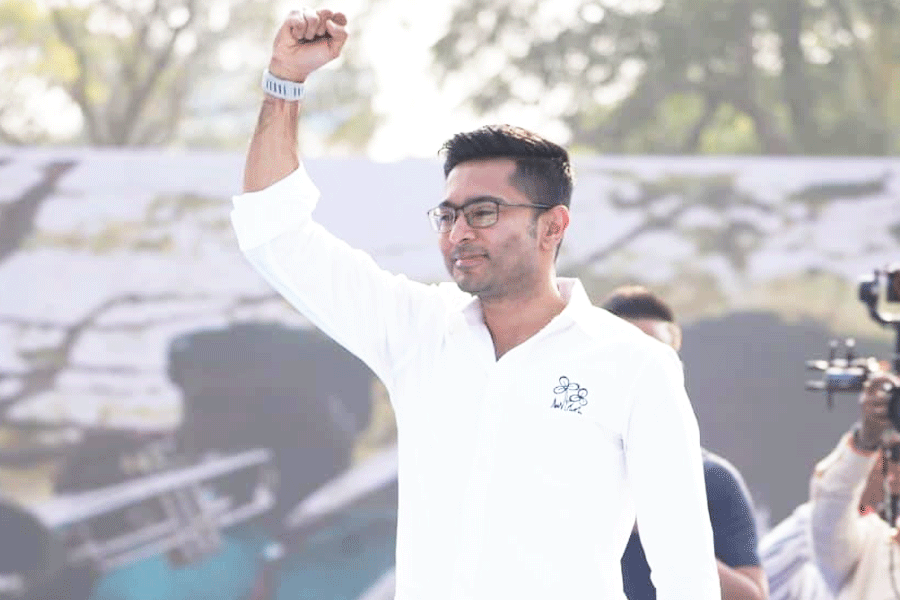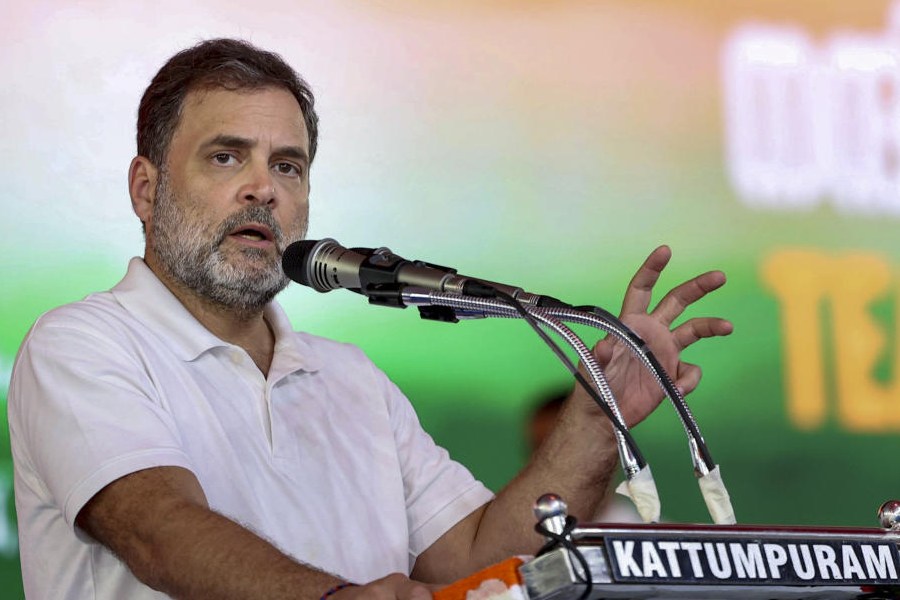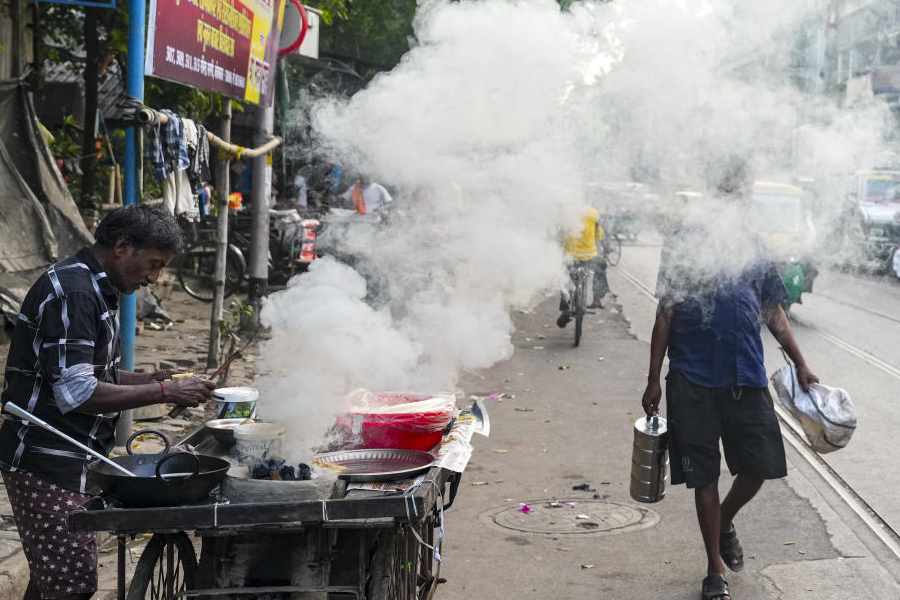-

Long journey: Bibek Debroy and (below) covers of his books
The old building is being given a makeover. The erstwhile Planning Commission - now known as the National Institution for Transforming India or Niti Aayog - is getting ready to greet the Prime Minister. Workers swarm the corridors, plastering the cracks and painting the walls.
But peace reigns in Bibek Debroy's office on the first floor. The economist, in a blue shirt paired with dark trousers, sits in front of a table, with the day's newspapers and the latest magazines neatly arranged on it. On top of the magazine line is the Organiser, the Rashtriya Swayamsevak Sangh's mouthpiece. That should be a recent addition to the list of subscribed magazines. After all, Debroy - awarded the Padma Shri this year - was some years ago in a foundation named after the Congress leader, Rajiv Gandhi.
He has agreed to an interview to discuss one of his passions - the Mahabharata. The last two volumes of a 10-book translation undertaken by him have just been published by Penguin. But the 60-year-old full-time member of the Niti Aayog says he feels a 'sense of dissatisfaction' after spending almost six years translating the books into English - a project comprising some 2.25 million words.
'The deaths of heroes who were with me on an intimate day-to-day basis for six years - whether the Pandavas or Krishna - were tragic or inglorious. None of them died like heroes. It leaves a hole in that sense. A pure sense of dissatisfaction,' he says.
An ardent student of Sanskrit, Debroy has also translated an abridged Maha Puranas, the four Vedas, the eleven major Upanishads and the Bhagavad Gita. He is the author of a book of essays on the Ramayana and the Mahabharata. Another of the Delhi-based dog lover's books on ancient texts is Sarama and Her Children, which looks at attitudes towards dogs in ancient India.
But before the Mahabharata and barring the Gita, he says he is not terribly proud of his translations. 'They were liked, but I now say that they were bad translations. My Sanskrit skills were not that good - I didn't understand everything I was reading.'
Debroy has based his Mahabharata on what is called the Critical Edition, issued by Pune's Bhandarkar Oriental Research Institute and based on research carried out between 1919 and 1966. The institute studied some 1,200 versions of the epic from across the country. The highest common factor - what appeared in most versions - was considered authentic and formed a part of the Critical Edition.
'Scholars will castigate me for saying this, but I think the original texts were far better. For instance, in the Critical Edition Arjuna is going towards the north, but suddenly he goes eastwards. There are several inconsistencies,' he says.
There were times when the translation work wasn't pleasant. 'Mahabharata is not a uniform text. There are some parts which are - I hate to use this word, but there is no other - 'boring',' he says.
Did any of the characters leave a deep impression on him? He doesn't have a favourite because the characters are not constant in time, he explains. But Shakuntala is the 'most spirited lady' in the Mahabharata and gives a 'fiery' speech in Dushyanta's court. 'No women's libber would be able to think of a comparable speech and such beautiful poetry,' he says.
Does that mean women's status was better all those centuries ago? He leans forward, quite like a passionate preacher, and replies, 'I can cite chapter and verse to prove that women were liberated. I can cite chapter and verse to prove they were oppressed. I can cite chapter and verse to say that women were free to have intercourse with whom they wanted. I can cite chapter and verse to illustrate that women had to treat husbands like God.' The composition of the Mahabharata, he explains, happened over hundreds of years and reflects different norms and values of different periods.
The economist-writer, when asked about 'myths' being taught as part of history in textbooks, says: 'These are not myths. But does it mean everything occurred as described? Obviously not. There have been embellishments. Myth is not in the text but in the people's interpretation of the texts.'
He has a suggestion for people battling over myths and facts. 'Both, those who support a wonderful set of knowledge and skills in ancient India and those who oppose it, would be better served if they really read the texts.'
Debroy, clearly, was reading them even while studying economics - his subject at Presidency (then College) in Calcutta, the Delhi School of Economics and Trinity College (Cambridge). He taught at Presidency before moving to the Gokhale Institute of Politics and Economics in Pune and later to the Indian Institute of Foreign Trade, Delhi.
His stint as the director of the Rajiv Gandhi Institute for Contemporary Studies, Rajiv Gandhi Foundation, Delhi, pushed him into the arc lights in 2005 when he concluded in a study that Gujarat was the most economically free state. Debroy had done the unthinkable by praising Gujarat, then led by the Congress's bête noire, Narendra Modi.
'I was never asked to quit. But I was told that anything I published would be politically vetted. That was not acceptable to me and I resigned,' he recalls.
He is very clear as to where he stands on the economy. 'My economic position is, I am on the right of centre. Was I uncomfortable with the Congress government during 1991-96? No, I wasn't because it was not diametrically opposed to my position. They could've done more. UPA I, I began to get uncomfortable but not so much. UPA II, most certainly.'
He met Modi for a 'serious discussion' in 2010 and in 2011 he was asked to study Gujarat critically. Soon after Modi came to power, Debroy was asked to head a committee to look into the restructuring of the railways, and was then made a member of Niti Aayog, which had its first meeting between the Prime Minister and chief ministers last Sunday.
He has a busy schedule ahead of him. Apart from his work at the Niti Aayog, he is planning to translate Hari Vamsha, considered an appendix to the Mahabharata, and Valmiki's Ramayana. He is also working on a book with the working title Artha on the proposition that wealth and prosperity were not looked down upon in the Mahabharata and other texts.
How is he going to find the time for all this? Debroy laughs. After all, if he can in six years translate 10 hefty volumes of the Mahabharata, everything else is child's play.

